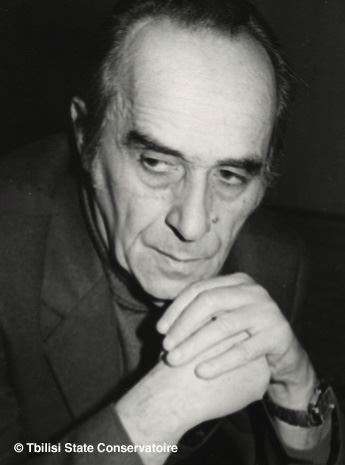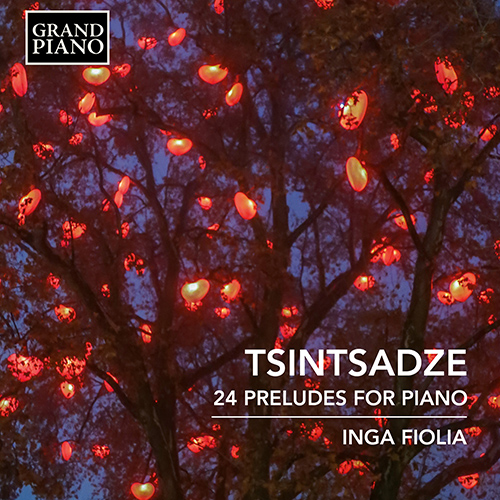
Sulkhan Tsintsadze (1925 - 1991)
Sulkhan Tsintsadze is regarded as one of the most original, brilliant and prolific Georgian composers. During his lifetime, he enjoyed wide popularity with diverse audiences, as well as the professional elite of the Soviet Union. The distinguished Soviet composer, Andrei Eshpai (1925–2015), wrote: ‘Tsintsadze’s talent is amazingly harmonious and multi-faceted. Each new composition manifests a new musical event.’
Sulkhan Tsintsadze was born in the historical city of Gori, situated in the eastern part of the former GSSR (modern day Republic of Georgia). When he was seven years of age, the family moved to the capital city of Tbilisi, where Tsintsadze started taking cello lessons with Professor E. N. Kapelnitsky at the First Musical Gymnasium. His extraordinary talent was quickly recognised, and the young cellist was transferred to the newly formed department for highly gifted children affiliated with the Tbilisi State Conservatory. But tragedy struck, when in 1937 Sulkhan’s father, Feodor Tsintsadze, was arrested during the mass repressions of the Great Purge. In spite of the difficult circumstances, Sulkhan continued his music education, and at age 17 entered Tbilisi State Conservatory. Concurrently, he accepted appointments at the GSSR State Symphony Orchestra and the Georgian State String Quartet. From 1945, Tsintsadze continued his education at the Moscow State Tchaikovsky Conservatory, where he studied cello with Professor Semyon Kozolupov and composition with Semyon Bogatyrev. In 1950, when still a conservatory student, he was awarded the USSR Government Prize for his Second String Quartet and Three Miniatures for Quartet.
Tsintsadze started to teach at the Tbilisi State Conservatory in 1963 and led the institution as rector from 1965 to 1984. During the last seven years of his life, Tsintsadze held the position of chairman of the Georgian Composers’ Union. In recognition of his extraordinary achievements, Tsintsadze was awarded the USSR Stalin Prize, and the Zakhariy Paliashvili and Shota Rustaveli government prizes; he received the title of People’s Artist of Georgia, and the highest honorary title of People’s Artist of the USSR. Tsintsadze remained a humble servant of music until his death in 1991.


 Grand Piano has gained a reputation for producing high quality recordings of rare keyboard gems. Dedicated to the exploration of undiscovered piano repertoire, the label specialises in complete cycles of piano works by many lesser-known composers, whose output might otherwise have remained unknown and unrecorded.
Grand Piano has gained a reputation for producing high quality recordings of rare keyboard gems. Dedicated to the exploration of undiscovered piano repertoire, the label specialises in complete cycles of piano works by many lesser-known composers, whose output might otherwise have remained unknown and unrecorded.






